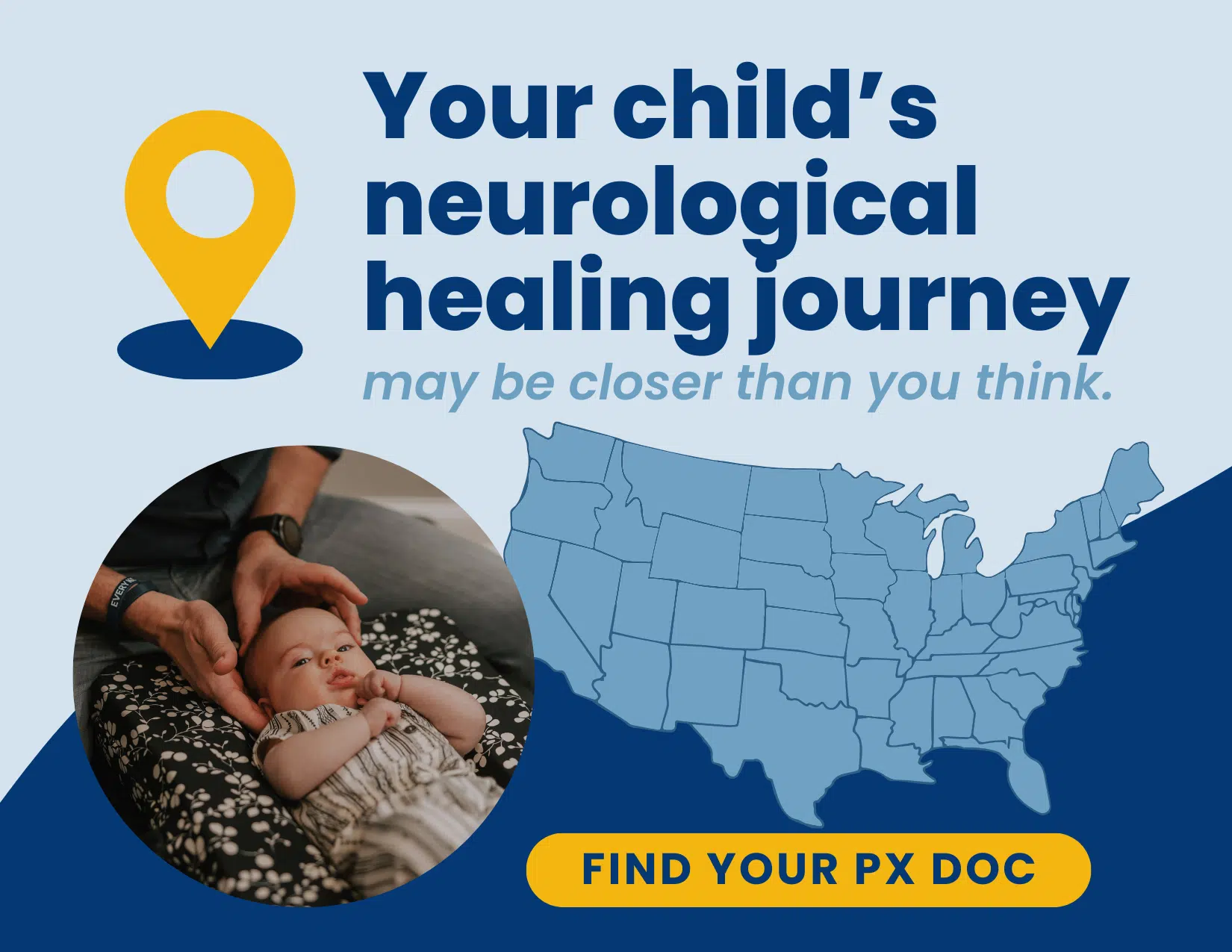As a parent, you’ve likely found yourself in this situation: Your child is sick, and the pediatrician prescribes antibiotics. You know these powerful medications can help fight bacterial infections, but you can’t help wondering about potential side effects. Will your child experience an upset stomach after antibiotics? Was it even a bacterial infection or maybe viral? Can antibiotics cause constipation?
You’re not alone in these concerns. Did you know that children in the U.S. are prescribed an average of 1-2 antibiotics each year?
While these medications can be lifesavers, they often come with unintended consequences for your child’s delicate digestive system.
In this article, we’ll explore the surprising connection between antibiotics and constipation in children. We’ll delve into how these medications affect your child’s body, why the conventional approach often falls short, and, most importantly, what you can do to support your child’s health during and after antibiotic treatment.
What Are Antibiotics and How Do They Work?
Antibiotics are powerful medications designed to fight bacterial infections. These drugs have revolutionized medicine, saving countless lives since their discovery. But to understand how antibiotics might lead to constipation, we first need to grasp how they function in your child’s body.
At their core, antibiotics kill bacteria or prevent them from reproducing. They do this in various ways, such as:
- Disrupting the formation of bacterial cell walls
- Interfering with bacteria’s ability to synthesize vital proteins
- Blocking bacterial reproduction processes
While this sounds great for tackling harmful bacteria, there’s a catch. Antibiotics can’t distinguish between the “bad” bacteria causing an infection and the “good” bacteria essential for your child’s health. Many of the side effects, including potential constipation, originate in this indiscriminate action.
Pediatricians commonly prescribe antibiotics for children to treat conditions like:
- Strep throat
- Chronic ear infections
- Urinary tract infections
- Pneumonia
- Severe sinus infections
It’s important to note that many of these prescriptions are for broad-spectrum antibiotics. These medications cast a wide net, targeting a variety of bacteria types. While effective against many infections, they also pose the greatest risk of disrupting your child’s delicate gut microbiome.
The Gut Microbiome: A Delicate Ecosystem
Imagine your child’s digestive system as a bustling city teeming with life. This city is home to trillions of microscopic inhabitants—bacteria, viruses, and fungi—collectively known as the gut microbiome. Far from being mere passengers, these tiny residents play crucial roles in your child’s health and well-being.
The gut microbiome is a complex and delicately balanced ecosystem that influences far more than just digestion. Research has shown that this microscopic community impacts:
- Immune system function
- Brain health and behavior
- Metabolism and weight regulation
- Mood and mental health
- Inflammation throughout the body
In a healthy gut, beneficial bacteria outnumber harmful ones, maintaining a harmonious balance. However, this delicate balance can be easily disrupted.
While antibiotics may effectively eliminate the harmful bacteria causing an infection, they also indiscriminately wipe out many beneficial bacteria. This disruption can lead to dysbiosis—an imbalance in the gut microbiome that can have far-reaching effects on your child’s health.
Dysbiosis can manifest in various ways, including:
1. Digestive issues like antibiotic-associated diarrhea or constipation
2. Increased susceptibility to infections
3. Allergies and skin problems
4. Mood changes and behavioral issues
5. Compromised immune function
From a PX Docs perspective, it’s crucial to understand that the health of the gut microbiome is intricately linked to the function of your child’s nervous system. The gut-brain axis, a bidirectional communication network between the digestive tract and the brain, relies heavily on a healthy, diverse gut microbiome.
When antibiotics disrupt this ecosystem, it can lead to more than just digestive issues—it can potentially impact your child’s nervous system function, behavior, and overall well-being.
Do Antibiotics Cause Constipation?
While it’s true that antibiotic-associated diarrhea is a common side effect, antibiotics can indeed cause constipation in some children. One study found that an upset stomach after antibiotics occurred in 9.3% of children, and constipation resulted in 8%.
But how exactly do antibiotics lead to constipation? There are several mechanisms at play:
- Disruption of gut microbiome: As discussed earlier, antibiotics can kill off beneficial bacteria in the gut. Some of these bacteria are crucial for maintaining regular bowel movements.
- Dehydration: Some antibiotics can cause nausea and decrease fluid intake. This can result in harder stools and constipation.
- Changes in gut motility: Antibiotics can affect the muscles in the intestines, potentially slowing down the movement of stool through the digestive tract.
- Nervous system impact: From a PX Docs perspective, it’s crucial to understand that antibiotics can also affect the nervous system, potentially leading to dysregulation – a condition where the autonomic nervous system doesn’t function properly. This can impact digestive processes and contribute to constipation.
It’s important to note, however, that antibiotics can cause a range of digestive side effects beyond just constipation or diarrhea. These may include:
- Nausea and vomiting
- Abdominal pain and cramping
- Bloating and gas
- Loss of appetite
In some cases, antibiotics can also increase the risk of more serious conditions, such as Clostridioides difficile (C. diff) infection, which can cause severe diarrhea.
The Neurological Connection: Beyond the Gut
When we think about digestive issues like constipation, we often focus solely on the gut. However, at PX Docs, we recognize a crucial player in this scenario that’s often overlooked: nervous system regulation. Understanding this neurological connection is key to understanding why antibiotics can cause constipation and how to effectively address it.
The nervous system, particularly the autonomic nervous system, is vital in regulating digestive processes. It’s like the body’s internal communication network, sending signals back and forth between the brain and the gut. This connection is so intricate that scientists often refer to the gut as the “second brain.”
One critical concept in this neurological perspective is subluxation. In chiropractic terms, subluxation refers to misalignments that can interfere with proper nervous system function. When it comes to digestion, subluxations can disrupt the signals between the brain and the gut and also leave the nervous system dysregulated and out of balance, potentially leading to issues like:
- Slowed gut motility
- Decreased production of digestive enzymes
- Impaired absorption of nutrients
- Altered gut microbiome balance
Antibiotics, while fighting infections, can sometimes exacerbate these neurological imbalances. They may increase inflammation or stress on the body, further impacting nervous system function and potentially worsening subluxations.
“The Perfect Storm”: How Antibiotics Contribute to Broader Health Issues
At PX Docs, we often refer to the concept of “The Perfect Storm” when discussing children’s health challenges. This idea helps us understand how various factors, including antibiotic use, can converge to create broader health issues beyond just constipation.
“The Perfect Storm” in the context of antibiotic use typically involves:
- Prenatal and early life stress: High maternal stress during pregnancy or early childhood trauma can set the stage for nervous system imbalances.
- Birth interventions: Procedures like C-sections or forceps deliveries can potentially cause misalignments in the spine and impact nervous system function.
- Repeated antibiotic use: This can significantly disrupt the developing gut microbiome and immune system, especially in the first few years of life.
- Poor diet and environmental toxins: These factors can further stress the body and exacerbate the effects of antibiotics.
From a neurological perspective, this “Perfect Storm” can contribute to ongoing nervous system dysfunction, including chronic subluxations and dysautonomia. These, in turn, can manifest as a variety of health challenges as your child grows, from recurring digestive issues to behavioral problems and beyond.
Recognizing Signs of Antibiotic-Induced Constipation in Children
While constipation might seem straightforward, it can present in various ways in children. Here are some signs to watch for:
- Infrequent bowel movements (less than three times a week)
- Hard, dry, or lumpy stools
- Straining or pain during bowel movements
- Abdominal pain or bloating
- Soiling accidents in toilet-trained children
- Changes in appetite or behavior
It’s important to note that these symptoms can sometimes be subtle. Your child might not clearly communicate their discomfort, so staying observant is key.
Natural Ways to Support Gut Health During and After Antibiotic Use
While our chiropractic approach forms the cornerstone of care, there are several ways you can support your child’s gut health at home:
- Probiotics: Consider giving your child a high-quality probiotic supplement during and after antibiotic treatment. This can help replenish beneficial bacteria in the gut.
- Fiber-rich foods: Incorporate fruits, vegetables, and whole grains to support regular bowel movements.
- Hydration: Ensure your child drinks plenty of water to help prevent constipation.
- Fermented foods: Yogurt, kefir, and other fermented foods can provide natural probiotics.
- Limit processed foods: These can be hard on the digestive system and may exacerbate constipation.
- Encourage movement: Regular physical activity can help stimulate digestion and promote bowel regularity.
Remember, these strategies work best when combined with proper nervous system support and function via chiropractic care. If you’ve tried everything on that list and your child still only has a bowel movement every couple of days or less, it’s time to seek out help from a trained Pediatric Chiropractor.
Exploring A Holistic, Neurologically-Focused Path Forward
Antibiotic-induced constipation in children is more than just a digestive issue—it’s often a sign of broader imbalances in the body, particularly in the nervous system. Fortunately, by focusing on the nervous system, addressing subluxations, and supporting overall body balance, we can help mitigate the potential antibiotics side effects, including constipation.
At PX Docs, we’re committed to providing care beyond symptom management. Our neurologically-focused approach addresses the root causes of health challenges, supporting your child’s body in its natural ability to heal and thrive.
If your child is struggling with constipation or other digestive issues during or after antibiotic use, know that there are natural, effective solutions available. We encourage you to find a PX Doc in your area for a comprehensive evaluation and personalized care plan. Together, we can support your child’s journey towards optimal health and well-being.






